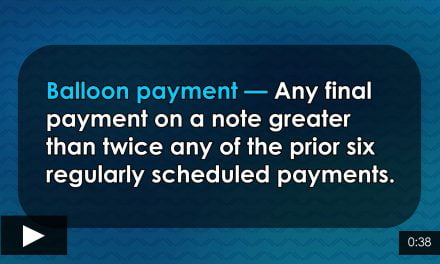One contract to be read together
In most carryback transactions, the buyer gives the seller a trust deed lien on the real estate sold as security for payment of the portion of the price left to be paid.
The trust deed is recorded to give public notice and establish priority of the seller’s security interest in the property. [Monterey S.P. Partnership v. W.L. Bangham, Inc. (1989) 49 C3d 454]
A trust deed without a monetary debt is worthless since it secures nothing as a lien to the property described. Although the note and trust deed executed by a buyer in favor of a lender or seller are separate documents, a trust deed is only effective when it provides security for an existing promise to pay or perform any lawful act that has a monetary value. [Domarad v. Fisher & Burke, Inc. (1969) 270 CA2d 543]
Though they are separate documents, the note and trust deed for the same transaction are considered one contract to be read together. [Calif. Civil Code §1642]















